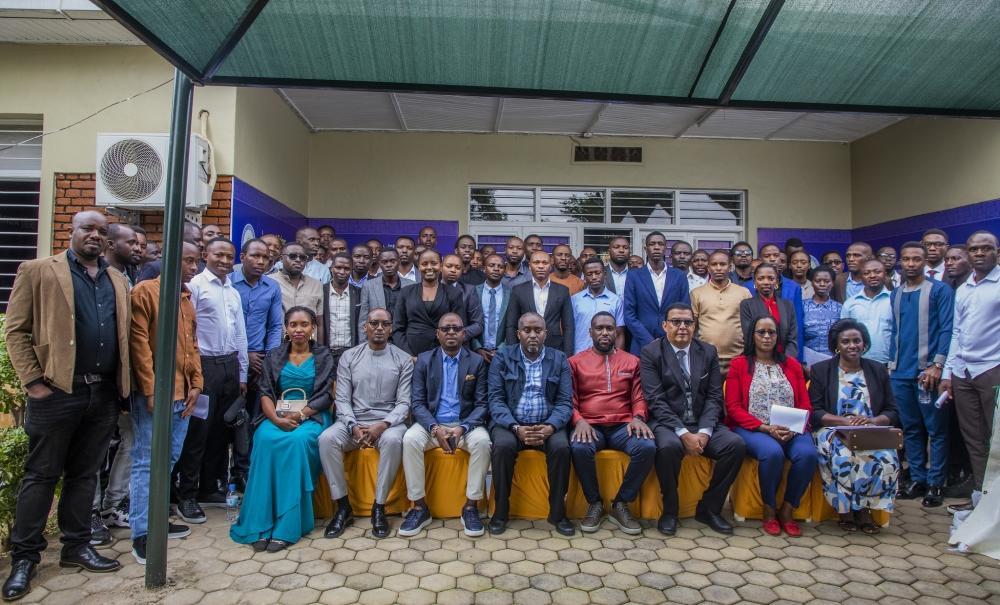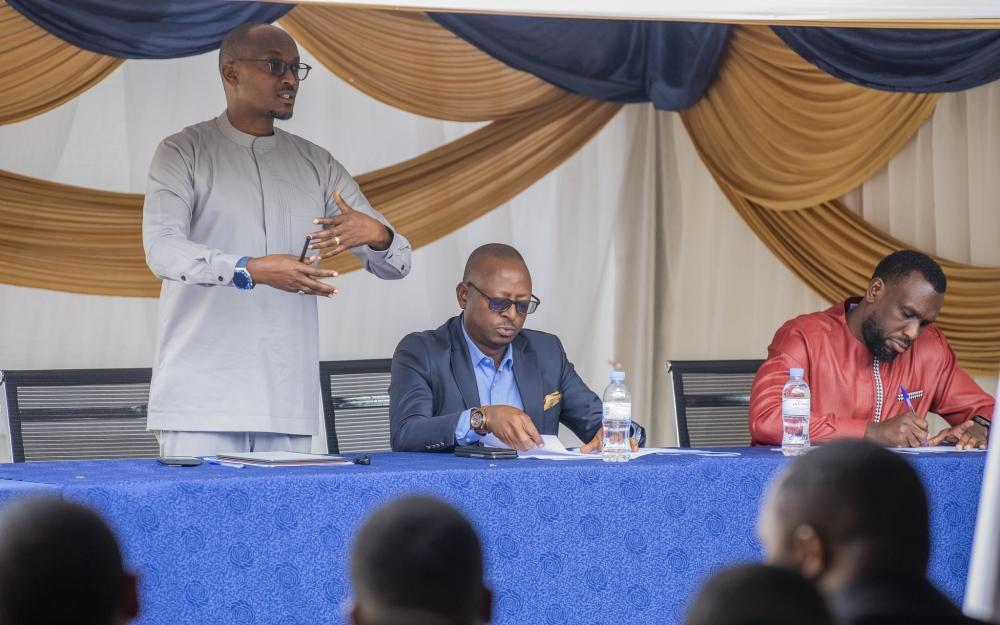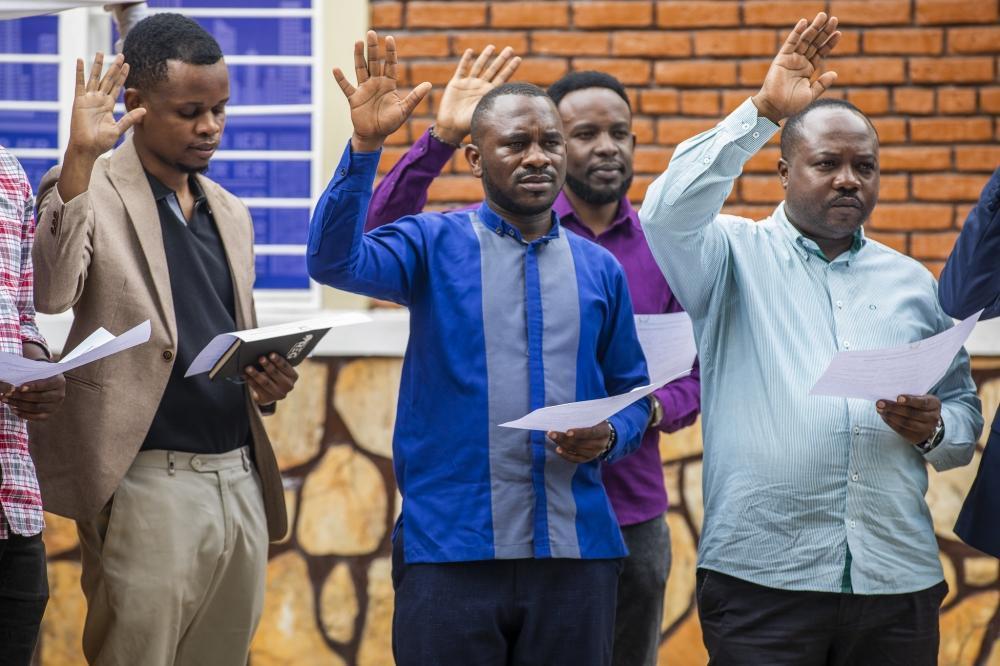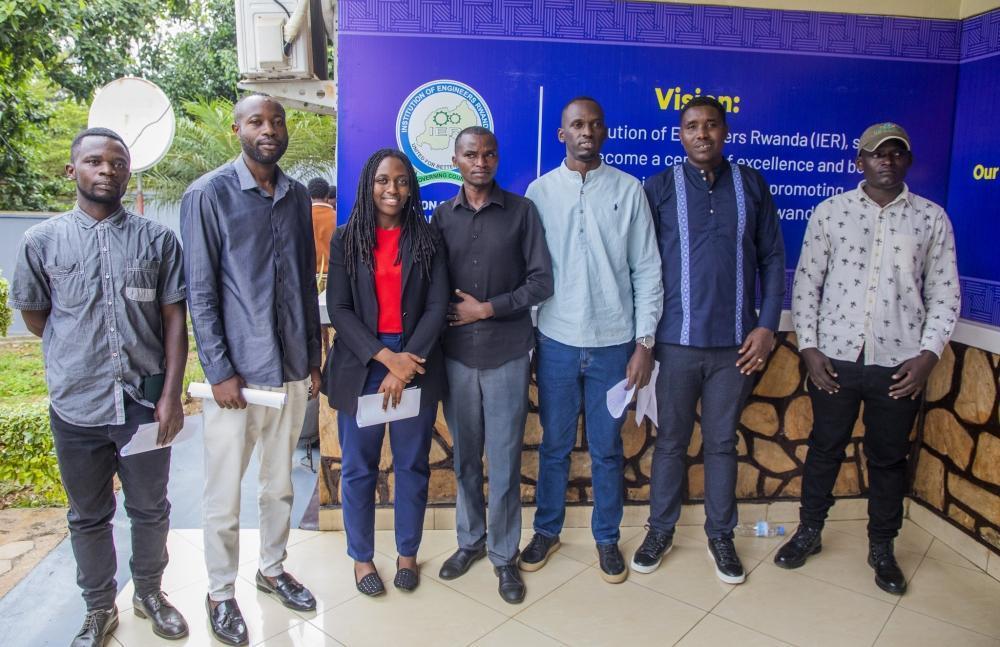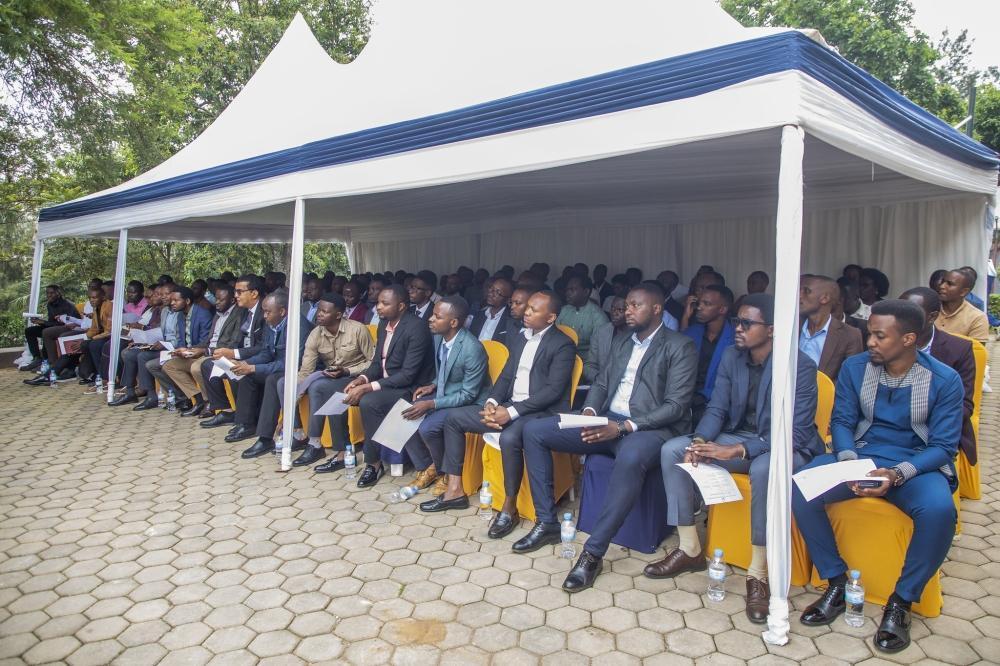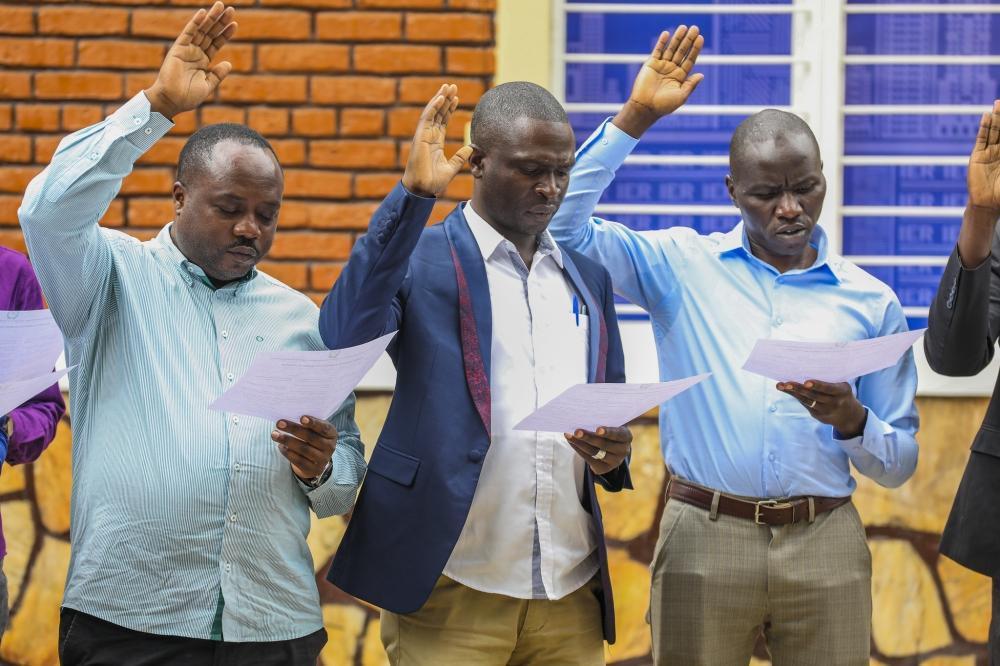Africa-Press – Rwanda. Over 100 professional engineers and 47 technologists, on June 13, took the official oath of service, pledging to adhere to the law and ethical standards governing their profession while delivering quality engineering services that support Rwanda’s development goals.
The swearing-in ceremony, held at the Institute of Engineers Rwanda (IER) headquarters in Kimihurura on Friday, June 6, brought together newly accredited professionals who had completed both their academic curriculum and a two-year mandatory practical experience under the supervision of certified engineers.
Eng. Alexis Dushimire Hategekimana, the Registrar of IER, commended the inductees for their perseverance throughout the evaluation process, which included interviews and professional examinations.
“From today, they are officially registered and recognized as professional engineers and technologists in Rwanda. By law, they are now allowed to be called engineers or technologists,” Hategekimana added.
The newly sworn-in engineers and technologists will now have access to vast opportunities from the IER and its partners. Hategekimana underscored that the opportunities are not limited to practicing in Rwanda but also extend across East African Community (EAC) member states, including Kenya, Uganda, Tanzania, and South Sudan, under the Mutual Recognition Agreement signed by the five countries.
“The law establishing the IER gives it a mandate to regulate the engineering profession,” Hategekimana added, elaborating on the path to professional accreditation. He explained that professional engineers must hold a university degree in an engineering field, register as fresh graduate engineers with IER, and complete at least two years of supervised field practice.
Technologists, on the other hand, are diploma (A1) holders in engineering-related disciplines. He also noted that IER recognizes technicians with A2-level certification. However, they are not required to take a professional oath.
IER currently has around 3,000 members, including professional engineers, technologists, technicians, consulting engineers, and over 300 registered consulting firms.
Hategekimana noted that the institute partners with various government and private institutions to support fresh graduate engineers in gaining the necessary experience for professional licensure.
“For now, we are dealing with partners and institutions that have big projects. For example, we are working with the Rwanda Transport Development Agency, where we have a memorandum of understanding to give them fresh graduates to engage in their projects,” he said, noting that this year, they will offer 60 fresh graduates who will work there for two years and later apply to become professional engineers.
Once sworn in, engineers receive a professional practicing license, granting them legal recognition and protection under Rwandan law and EAC frameworks.
“They are now answerable to the public and the government for the quality of their work and are fully protected by the law. This accountability ensures that engineering standards in the country remain high,” Hategekimana emphasized.
Among the new cohort of licensed professionals was Nicole Uwineza Mukwindi, Senior Engineer of Generation and Maintenance Planning at Rwanda Energy Group (REG), who described the moment as “proud and encouraging.”
“It is like I am just starting my career. Now I know that if someone came to Rwanda and requested a list of engineers, I would be on that list as a recognized engineer,” explained Mukwindi, who holds a bachelor’s degree in Mechanical Engineering and a master’s in Renewable Energy from the University of Rwanda.
“It is also an advantage to be part of the EAC engineering community, which will allow us to learn, share opportunities, and connect.”
She called her licensure an opportunity to inspire more women to join the engineering profession.
“Our numbers are very low. My registration and recognition mean that I have to keep inspiring the community and other women. I hope my registration will be an inspiration for other women,” she noted, underscoring that the country has given women a platform to show that they can achieve incredible milestones.
Emmanuel Uwayezu, a mechanical engineer who recently completed IER’s fresh graduate engineer program, described the moment as a “career milestone.”
“Before this recognition, many people did not fully understand the value of a fresh graduate engineer. But now, being a certified professional gives us credibility and confidence,” Uwayezu said.
“My goal now is to grow, connect with others in the profession locally and in the region, and contribute meaningfully to national development.”
Official presides over the swearing-in ceremony.
Some of Over 100 professional engineers and 47 technologists, took the official oath of service on June 13. Photos by Craish Bahizi
The event brought together newly accredited professionals who had completed both their academic curriculum and a two-year mandatory practical experience under the supervision of certified engineers.
The new members pledged to adhere to the law and ethical standards governing their profession while delivering quality engineering services that support Rwanda’s development goals.
The swearing-in ceremony, held at the Institute of Engineers Rwanda (IER) headquarters in Kimihurura on Friday, June 6.
For More News And Analysis About Rwanda Follow Africa-Press

